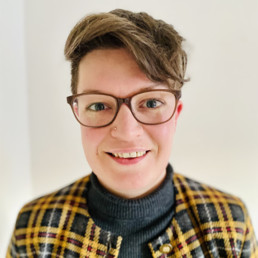
Written by Lois Nethersell-Webb
Lois is a History teacher and DEI Lead at a rural Norfolk High School. In this role she is leading whole school training on diversifying the curriculum. Lois is also a founder of the Norfolk DEI Network and is passionate about encouraging and guiding young people to become change makers.
What kind of adults do we want our students to become? Do we want them to passively accept the status quo or do we want them to become active citizens who question the world around them? If the latter, then we must model and shape this behaviour in schools by providing them with opportunities to express their views and lead on causes that ignite their passions.
Students need to see that becoming involved in DEI work within schools or, indeed, wider society, is a sign of strength. When the government views standing up for marginalised groups as ‘woke’ we are fighting a populist narrative. Educators need to demonstrate to students that standing up to a friend who uses racist or homophobic slurs is not woke, it is strength. Educators need to demonstrate to students that calling out your mate who has made sexualised comments to a female student is not woke, it is strength. Educators need to demonstrate to students that refusing to mimic the accent of a new teacher is not woke, it is strength.
One way that schools can demonstrate active citizenship to the pupils in their charge is through setting up intersectional diversity groups. Whilst student groups focused on one particular protected characteristic, such as Pride Club, have their place, an intersectional group enables students with different protected characteristics, and their allies, to come together and support each other. We must create safe spaces for students to discuss concerns and lived experiences before supporting them to curate ways in which to spread their narratives across the whole student body.
Our student Diversity, Inclusion, Campaigns and Equality (DICE) group have been instrumental in raising awareness of a number of societal issues. Whether it be a cube of truth focused on male mental health or the lunchtime climate change protest, our students have thought of innovative and engaging ways to enlighten the wider student body and get them thinking about how change can happen. Showing students how to use their voice for good and how to channel their views is an essential part of their education.
All too often running student groups, like DICE, is left to chance. If there is a member of staff with a protected characteristic or who has a particular passion for DEI work then the student groups are formed. This should not be the case. LGBTQ+ teachers are tired of being the ones to start the Pride Clubs in schools. Black teachers are tired of being the ones who support students who have experienced racism. We need our allies. We need other educators, particularly white, able bodied, cisgendered male educators, to stand with us and help set up student groups. The power you hold is immeasurable. Help us set up our student groups and demonstrate that DEI work is the work of all.
To create a truly diverse, equitable and inclusive society all adults, no matter their lived experiences, must see tackling injustice and inequality as their responsibility. For this to happen we must start by showing students that DEI work is a collective responsibility. If you want to help your students become young changemakers – set up an intersectional student DEI group; neither you nor your students will regret it.

